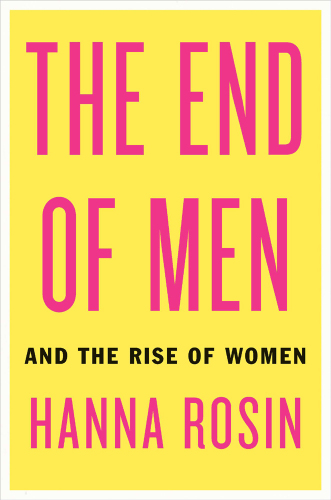
The End of Men
And the Rise of Women
کتاب های مرتبط
- اطلاعات
- نقد و بررسی
- دیدگاه کاربران
نقد و بررسی

October 15, 2012
This debut by Atlantic magazine senior editor Rosin bears witness to a paradigm shift currently turning the gender norms of American society upside down. "Plastic women," adaptable in a changing economy and culture, dominate institutions of higher education and steadily infiltrate the cubicles and boardrooms of a corporate America, and no longer need men to be the breadwinners. "Cardboard men," especially working-class and unskilled men, forced out of their factory jobs by the growing industrial flight, struggle to find purpose and employment in an evolving economy that values brains over brawn and the ability to build teams over handiness with a hammer. Rosin explores these changing gender norms across several settings, from the bedroom to the jail cell (more women are being arrested for violent crime than in the past), and teases out the highs and lows experienced by women attempting to shoulder the breadwinner and housekeeper roles simultaneously. Rosin's passion for the subject is married with the depth of understanding gained from years of reporting to produce confident prose and thorough citation. She deftly balances academic research with relatable anecdotes, from sorority sisters to single mothers. Rosin ends with a vision of both genders putting aside outdated traditions and finding a new normal built on the strength of human connection.

August 15, 2012
Atlantic senior editor Rosin (God's Harvard: A Christian College on a Mission to Save America, 2007), co-founder of Slate's women's section, DoubleX, argues that women are more likely than men to succeed in the modern workforce. The author conducted extensive interviews with women of various backgrounds, from the Midwest to Korea. She bases her argument partly on the flexibility of women and partly on the fact that employers are beginning to value characteristics stereotypically attributed to women, such as empathy. Rosin suggests that the world may be headed toward a matriarchy. It is refreshing to find optimism in a book about the gender gap, but in some cases it seems that women haven't progressed as much as men have fallen behind. In several of the households Rosin discusses, what has made the women the main breadwinners is not just drive, but the fact that their men don't hold steady jobs. Most of those men do not completely fulfill domestic duties either, leaving the women to work both outside and inside the home. Though she later takes up the issue of splitting household duties, Rosin glosses over it early on to paint a picture of matriarchal utopia. The author covers an impressive amount of ground about women, including the professions they dominate, how they can rise to the top, and their relationship to casual sex. Particularly interesting is Rosin's examination of female violence. She shows that as women gain power, they encompass the negative traits that were once only attributed to men, therefore countering the myth that a world ruled by women would be more peaceful. A great starting point for readers interested in exploring the intersecting issues of gender, family and employment.
COPYRIGHT(2012) Kirkus Reviews, ALL RIGHTS RESERVED.

April 1, 2012
Founder of Slate's Double X, Rosin drew on recent research to write an Atlantic Monthly cover story arguing that using every measure of success (e.g., education, work) women are currently outstripping men. This expansion of her story will likely make some readers feel angry and others triumphant. The publisher's big nonfiction for the fall.
Copyright 2012 Library Journal, LLC Used with permission.

September 1, 2012
Global and U.S. macroeconomic changes over the past several decades have affected men and womenand people in two broad classesquite differently, Rosin argues. As jobs shifted focus from brawn to brains, women adapted and expanded their work options (retaining many home responsibilities), while men (particularly the 70 percent who lack college degrees) often didn't adapt. (Rosin's shorthand for this split is Plastic Woman and Cardboard Man. ) Among college grads, she suggests, this produces seesaw marriages, with both spouses on attractive career paths and alternating the allocation of family responsibilities. For couples without degrees, women's adaptability and pursuit of education frequently leave their spouses (or potential spouses) far behind. Rosin explores gender-role and business-organization theories but enlivens her analysis with close observation of individual cases (including a cross-cultural look at similar issues in Asia). An Atlantic senior editor, Rosin has written for top newspapers and magazines; founded Slate's DoubleX women's section; authored God's Harvard (2008), a study of Evangelical Christian Patrick Henry College; and won a 2010 National Magazine Award.(Reprinted with permission of Booklist, copyright 2012, American Library Association.)

























دیدگاه کاربران